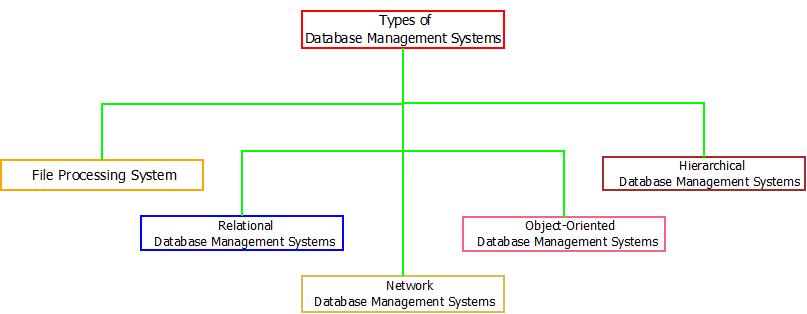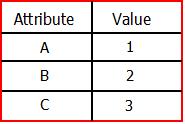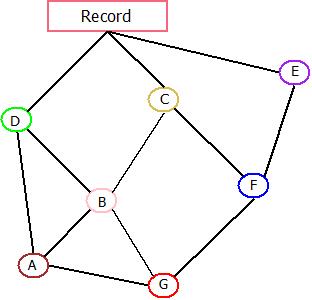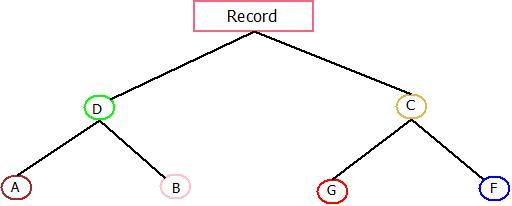Types Of DBMS
- With respect to the need and requirement of users in industry, different types of Database Management Systems were introduced to let the compatibility of user’s requirement match with the types of DBMS(Database Management Systems) available.
- These types of databases are generated and introduced on the basis of certain requirement parameters and technology changes. Some of them are listed below.

Types Of DBMS
1. Types Of DBMS: File Processing System
- File Processing System is a traditional approach to storing and managing data. Data Storage was being done by storing the information in files present on the computer. If in case there is a need for data, the files were checked individually to retrieve desired results.
- For small-scaled data, the file processing system was a good option to store, manipulate, and retrieve data. But when the size of data increases, the file processing system was so slow to generate desired results and it lagged behind. It was a tough job file processing system to input such a large data in the form of files and completely impossible to retrieve data just by simply searching it in every file.
- Other problems of file processing system include data duplicity(redundancy), low security of data, inability to handle multiple user requests at the same time, and many more. That is why the file processing system was left out and other databases are being used now.
2. Types Of DBMS: Relational Database Management System(RDBMS)
- In Relational Database Management Systems, unlike file processing systems the data is stored in the tables(having rows and columns) where any table can be related or linked to any other table using certain concepts. Also, data storage using tables makes it very easy to maintain, manage, and manipulate records.
- The data stored in tables are presented as relation and this data can be extracted and retrieved at any point in time. This can be done by using query languages such as SQL(Structured Query Language) which helps in data manipulation and data extraction.

Types Of DBMS: RDBMS
3. Types Of DBMS: Network Database Management System(NDBMS)
- Network Database Management System is another type that was very popular in the late 1970s. These databases were known to be very adaptable and flexible in terms of data storage because of their data storage architecture. But, the problem aroused at the time of data retrieval as their flexibility became the major issue.
- Every dataset being related to every other data set forming a network made it very complex and difficult to search and get back the required data. Hence, they were also avoided and are not being used now.

Types Of DBMS: NDBMS
4. Types Of DBMS: Hierarchical Database Management System(HDBMS)
- The Hierarchical Database Management System works on the concept similar to that of “Concept Hierarchy”. The whole database is structured and architecture in the form similar to the structure of a tree, making it one of the simplest and fastest databases present out there.

Types Of DBMS: HDBMS
5. Types Of DBMS: Object-Oriented Database Management System(OODBMS)
- They are different from other databases as Object-Oriented Database Management Systems revolves around “Object”(An object here referred to any real-world entity) and is based upon the concept of various object-oriented languages such as “C++, Java” etc.
- OODBMS also pertains
the concepts of:
- Encapsulation.
- Inheritance.
- Overloading.
- Overriding.
- OnNotes, Poet, EyeDB are some of the examples of OODBMS.